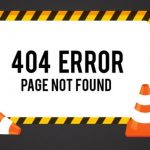Pay per click advertising (PPC) is a great way to receive instant exposure to your website and raise your chances of seeing an immediate increase in revenue. However, if not done properly, PPC advertising could easily become a very expensive venture potentially costing you thousands of dollars or more in lost ad spend.
Here are seven questions you must ask yourself before starting a PPC campaign.
1. Do You Know What Need Your Product or Service Fulfills?
Before you can identify your target market, you need to determine what need your product or service fulfils. Make sure you think inside and outside the box. If you sell a product that serves one particular need, also think about how else it could be used and what other needs it could fulfil.
After you have the answers to those questions, then will you be able to identify your target market. And your target market could potentially be more than one group, depending on how many uses you have determined your product or service could be used for. Additionally, if you’ve determined your product or service serves more than one use, you will need separate PPC campaigns for each one so you can properly direct each campaign to its specific target market.
2. Have You Identified Your Target Market?
Now that you know how many uses your products and services fulfil, you need to identify your target market(s). Who is most likely to use what you’re offering based on age, buying power, geographical location and marital status, etc.
3. Have You Properly Identified Commercial Keywords?
You will need to develop a list of commercial keywords and make sure you are not using any negative keywords as these could drain your budget in a matter of hours, especially if you don’t have a daily budget set when you setup your PPC campaign.
Here are some examples of commercial keywords:
● ‘Buy Now’ commercial intent keywords. These keywords implies that they are ready to buy. Buy now keywords include terms like buy, discounts, deals, coupons, and free shipping.
● ‘Product’ commercial intent keywords. These keywords typically converts at a high rate. Product keywords include branded searches, specific products, product categories, affordable, best, cheapest, comparison, and review.
4. Do You Have a Website or Specific Landing Page?
You will need somewhere to send your visitors once they click on your PPC ads. That means you will need a website or landing page, one that has been properly optimized for SEO and has followed the proper SEO link building industry best practices. Otherwise, it will lower your quality score and cause your ads to be more expensive, if they’re approved at all.
Here are some pro tips:
● Make sure the message from your ad copy matches your landing page.
● Make sure the message on your landing page answers the visitor’s query
● Get creative with your Call-To-Actions. Avoid using vague words like ‘Submit’.
5. Is Your Website Mobile Responsive?
The majority of your viewers will probably be clicking your PPC ads from a mobile device. Therefore, it’s imperative that your website and/or landing pages are mobile responsive.
Follow the next steps to build a perfect responsive landing page.
● Use short headlines for mobile landing pages
● Keep it simple and organized.
● Include a strong, clear, and immediate call to action.
● Include a clickable phone number.
● Make sure it loads super fast
6. Is Your Goal to Sell or Grow Your List?
If your goal is to sell, then you will need to design your website or landing page to cater to that function.
Let’s take a look at 5 ways your landing page can help you sell more products.
● Offer benefits, not features
● Use customer testimonials and reviews
● Frame your product in the best possible light to make it beautiful
● Keep your CTAs appealing, rather than demanding.
● Sell the deal, not the product.
If your goal is only to grow your email or SMS list, then you will need to make sure your website or landing page is designed to create excitement, a sense of urgency or an inherent need to obtain the valuable information you’re giving away in exchange for your readers email address.
Here are things to keep in mind:
● If you are selling a product, then give them the option to subscribe to your email list during the checkout process.
● If you are a B2B company, then you can earn their email address by offering valuable content in the form of a PDF, eBook, Whitepaper, or software
Those email addresses can then be used by your email software to send out promotional emails to educate and sell to your list indefinitely. If you combine it with a text messaging service, you can help boost your read rate.
6. Do You Want to Build Brand Recognition?
If you want to build brand recognition, you need to target keywords that will help your ad show up in relevant searches. For example, if your company name is XYZ Company and you sell XYZ Widgets, then you should try to target keywords that contain the words XYZ Company or search terms such as “buy XYZ Widgets” and other related brand terms.
7. Do You Have Time to Properly Run and Monitor Your PPC Campaigns?
PPC, when done properly, can be an extremely profitable form of advertising. However, if you don’t have the time, or you don’t know how to properly run and monitor your PPC campaigns, it would be more cost effective for you to hire a professional to do it for you. Whatever money you spend hiring a professional marketing company to handle your PPC campaigns, will be well worth the return on your investment and then some.
If you would like to talk with a PPC expert, please contact us today and let us show you how we can help take your business to the next level.


